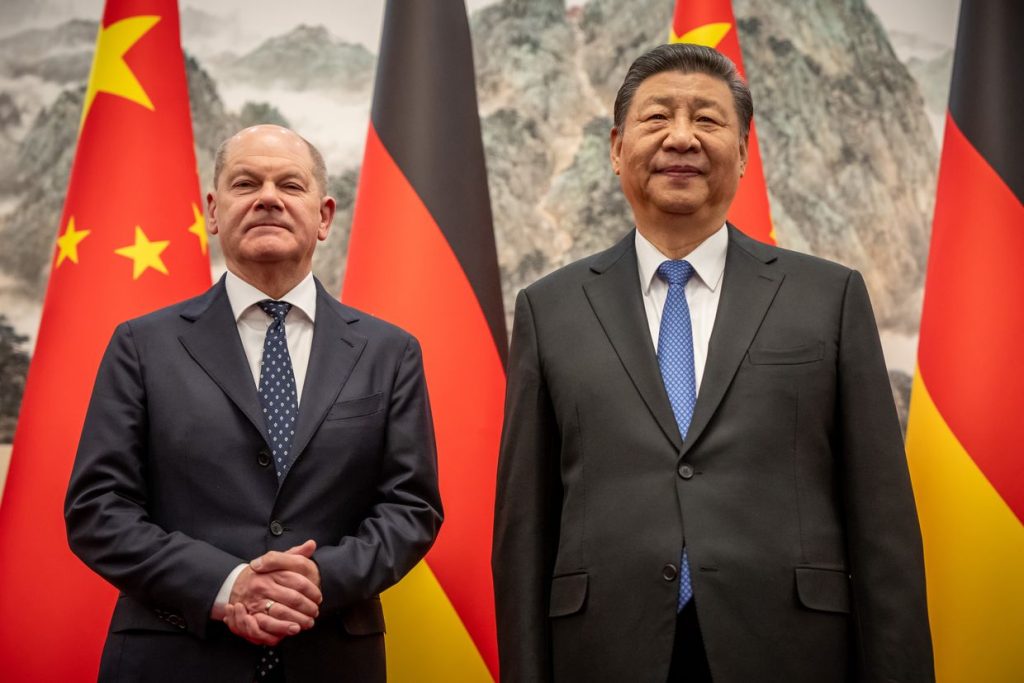German Chancellor Olaf Scholz visited Chinese President Xi Jinping in Beijing on April 16, with the intention of discussing ways to contribute to a just peace in Ukraine among various other topics. During the meeting, Xi proposed four principles to resolve the war, emphasizing refraining from selfish gains, maintaining peace, creating conditions for peace restoration, and reducing negative impacts on the global economy. While Scholz’s team described the talks as “good,” Xi has not condemned Russia’s actions in Ukraine, and China has abstained from voting on UN resolutions regarding the conflict. Despite this, Ukraine and Europe have urged China to use its influence over Moscow to help end the war.
On April 9, Washington expressed concerns to its allies about China’s support for Russia, prompting the Chinese Foreign Ministry to defend the right of Beijing and Moscow to continue their “normal cooperation.” China has close ties with Russia since February 2022, and while Beijing has not openly denounced Russia’s actions, China claims to be a “force for peace.” Washington continues to voice concerns regarding China’s role in the conflict, highlighting the importance of diplomatic efforts to influence Moscow to end the war. Germany, the Netherlands, and Canada have announced plans to send drones to Ukraine to support its defense capabilities.
Recent developments on April 15 included comments from the UK foreign secretary cautioning against deploying jets to protect Ukraine, warning that it would lead to escalation. Additionally, Ukrainian forces were reported to have targeted a command post in Russian-occupied Crimea, demonstrating ongoing tensions in the region. Despite these challenges, Ukraine continues to modernize its defense capabilities, with the development of sea drones capable of carrying out operations at sea. The international community remains engaged in efforts to support Ukraine in the face of Russian aggression, with various countries offering military and logistical assistance to bolster Ukraine’s defense against Russian forces.
The discussions between Scholz and Xi in Beijing underscore the complexities of the international response to the conflict in Ukraine. While China has refrained from condemning Russia’s actions and has maintained close ties with Moscow, diplomatic efforts are ongoing to encourage Beijing to use its influence to help resolve the conflict. The involvement of key Western allies, such as Germany and the UK, in engaging with China highlights the global nature of the crisis and the importance of international cooperation in addressing the conflict. As the conflict in Ukraine continues to unfold, diplomatic efforts will be crucial in navigating the complexities of the situation and working towards a just and peaceful resolution.
Overall, the discussions between German Chancellor Olaf Scholz and Chinese President Xi Jinping centered on addressing the conflict in Ukraine and exploring ways to contribute to peace efforts. Despite China’s close ties with Russia, diplomatic efforts are underway to encourage Beijing to use its influence to help resolve the conflict. The international community continues to provide support to Ukraine in the form of military assistance, with various countries sending drones and other resources to bolster Ukraine’s defenses. As the conflict continues to escalate, diplomatic efforts and international cooperation will be key in navigating the complexities of the situation and working towards a just and peaceful resolution in Ukraine.


